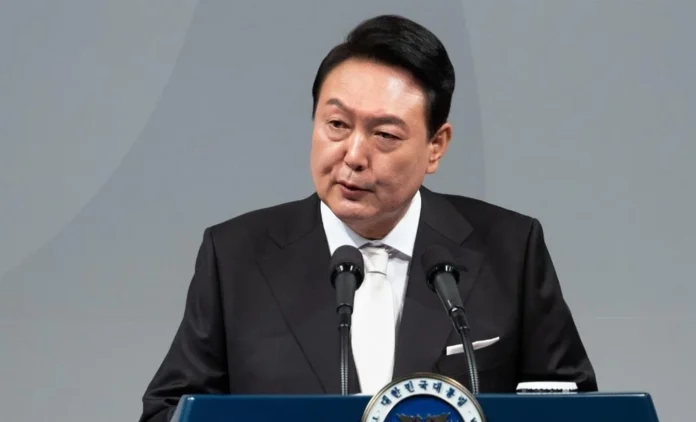South Korea’s National Assembly has impeached President Yoon Suk Yeol following his contentious declaration of martial law earlier this month.
In a decisive vote, 204 out of 300 lawmakers supported the motion, exceeding the required 200-vote threshold. The remaining 85 legislators opposed the decision.
President Yoon had announced emergency martial law on December 3, claiming it was necessary to safeguard the country’s constitutional order. In a live television address, he accused the opposition, which holds a majority in parliament, of collaborating with North Korea to destabilize the government through what he called “anti-state activities.”
“The opposition is working to paralyze the government with its anti-state activities,” Yoon declared during his address, warning of a looming national crisis.

The declaration sparked massive protests across the country, with demonstrators demanding Yoon’s resignation. In response, the National Assembly convened an emergency session, ordering the military to stand down and moving an initial impeachment motion. However, the first attempt failed as Yoon’s party, the People Power Party (PPP), boycotted the voting process.
Despite Yoon rescinding the martial law order just six hours later, the political fallout intensified. Critics accused him of plunging the nation into a constitutional crisis, and a second impeachment motion was introduced.
This time, the lawmakers accused Yoon of insurrection and “abandoning his duty to protect the constitution.” The motion succeeded after the opposition Democratic Party (DP) convinced at least eight members of Yoon’s PPP to support the impeachment.
With Yoon’s impeachment, Prime Minister Han Duck-soo will serve as acting president while the Constitutional Court reviews the case. The court, currently operating with only six of its nine justices, has up to 180 days to make a decision. For the impeachment to be upheld, all six justices must unanimously agree.
If the court upholds the impeachment, Yoon would lose his presidency, and a new election would be required within 60 days. Until then, Yoon will remain in office with limited powers.
Should the impeachment be finalized, Yoon will become the third South Korean president to face this fate, following Roh Moo-hyun in 2004 and Park Geun-hye in 2017. While Roh was reinstated by the Constitutional Court, Park’s impeachment was upheld, resulting in her removal from office.
South Korea now waits for the court’s decision, as the nation grapples with uncertainty and political tension.




